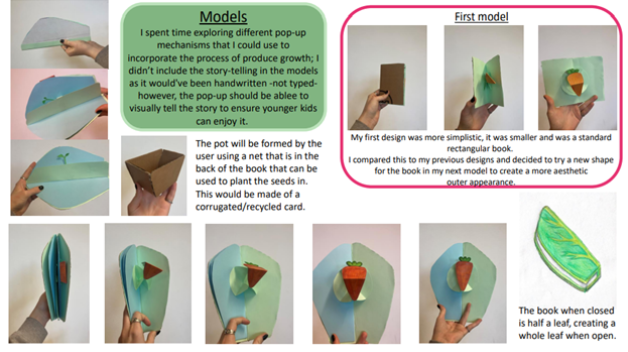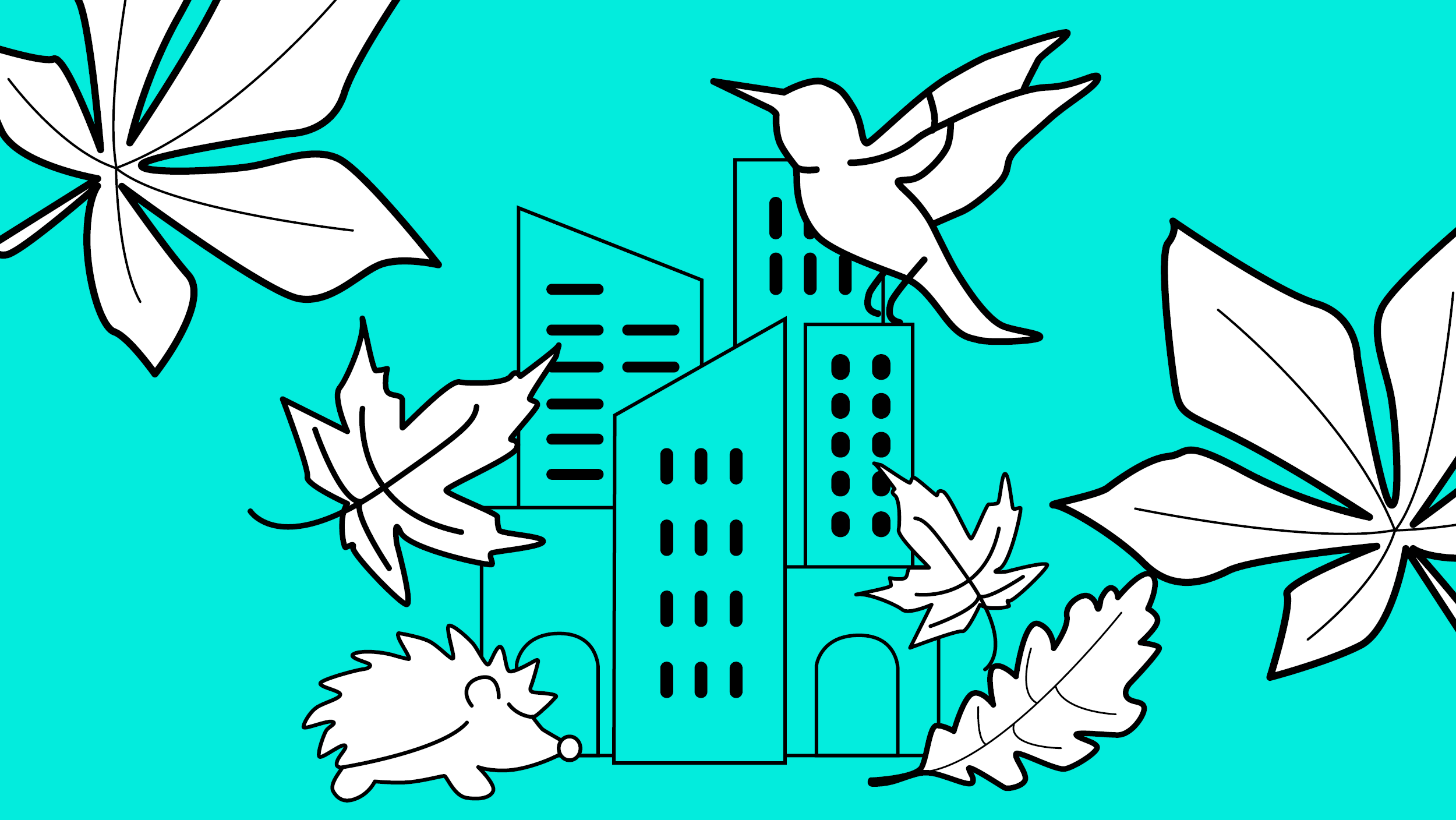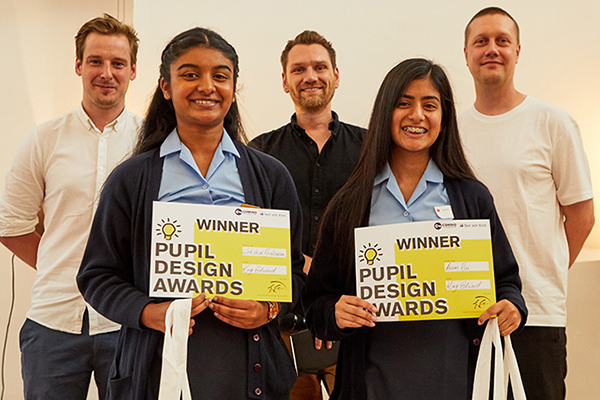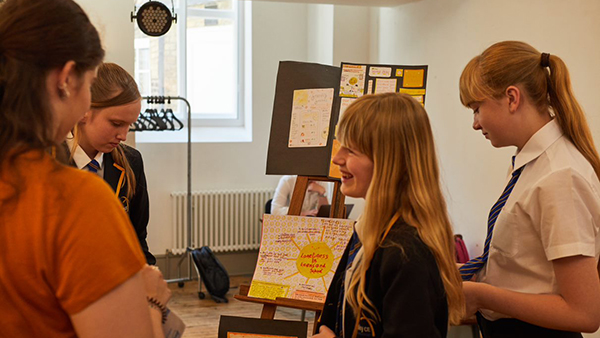The RSA Pupil Design Awards 2021 – 2022 winners have been announced. Once again the awards have provided us with a range of exciting and innovative ideas from pupils across the country.
Young people today are entering a world beset by a confluence of economic, social, and ecological crises, though not everybody will experience their effects equally. By engaging them in high-quality social and regenerative design thinking, the RSA aims to support all young people to flourish, so that they can support their local communities to flourish too.
How, then, is our education system equipping young people to think about their role in addressing some of these challenges through the disciplines they are passionate about, such as design, engineering, art and beyond? How can we grow the creative self-efficacy of young people and their belief in the creativity of their own ideas that might one day support people, place, and planet to flourish?
Part of the answer, we feel, can be found in the Pupil Design Awards. Our focus is on supporting young people to develop their self-belief in bringing about social change by creatively employing design thinking to tackle real challenges facing people and the planet.
The winners of the RSA 2021-2022 Pupil Design Awards demonstrated truly imaginative approaches and designed incredibly innovative solutions to some of society’s key challenges.
The successful pupils were:

Winners of years seven and eight age group
Finlay, Nic, and Ewan from St Mary’s School, Melrose
The judges were impressed with Finlay, Nic and Ewan's app idea designed to enable young people to meet and make friends, especially if they identify as LGBTQIA+, providing information and support. Their passion for the subject matter and the maturity in which they approached the topic were specifically commended. The rigorous research the pupils conducted helped them better understand the user experience of their app and went beyond just product design to also think about how an app could also support community building and advocacy education on key issues facing young people who identify as LGBTQIA+.

Winner of years nine and 10 age group
Leila from South Hampstead High School
The adaptable fence post and frame devised by Leila is designed to enhance local biodiversity. Her proposal, which encourages natural growth and provides a habitat for wildlife, ticked all the judges’ boxes: a unique interpretation of the brief; drawing inspiration from her community; and the consideration for the wider sustainable impact. Leila’s presentation of her simple but effective proposal particularly impressed with one judge calling it ‘a masterclass in storytelling and showcasing’.

Winner of year 12 age group
Lily from Alexandra Park School
Lily’s design looked to educate her peers on the importance of food sustainability. She achieved this through a recyclable pop-up book made from seeded paper from which the pages can be torn out and planted allowing children to grow their own food. For the judges, Lily’s idea was unexpected, innovative, and considered the wider food waste issues. The judges agreed the real-world potential for Lily’s idea is clear as businesses and other organisations look to engage children and families on this important issue.
Read more about the winners of the 2021-2022 RSA Pupil Design Awards below.

Pupil Design Award Winners
See the winners of the 2021-22 Pupil Design Awards competition.
Celebrating the Pupil Design Award winners 2021-2022
Our winners will be honoured at an award ceremony on Wednesday 29 June 2022 at RSA House. This year’s awards are made extra special as for the first time ever we will be bringing the winners of both the Pupil Design Awards and the Student Design Awards for a joint celebration.
The finalists and winners will take part in various design-based activities throughout the day including workshops run by Student Design Award alumni Aniela Fidler Wieruszewska and RSA Catalyst Award winners Design Nature. This will be followed by the awards presentation with guest talks from Jose Chambers, from the Comino Foundation (whose support makes the RSA Pupil Design Awards possible) and last year’s PDA winner, Chehara.
The challenges our winners' designs looked to solve
The winners of this year’s RSA Pupil Design Awards responded to three briefs that challenged them to design a solution to a social issue. These briefs were:
- Food for Thought - How might we rethink our current food system to design out waste?
- Learning to Belong - How might we ensure that schools become places of belonging for all pupils?
- Green Streets - How might we restore nature to urban spaces to ensure that people and the planet thrive together?

Responding to this year’s Food for Thought brief, pupils had the opportunity to think about how and where their proposals intervene within the food system to tackle various forms of waste such as edible food and inedible by-products, as well as energy waste. They’ve been able to consider how, instead of degrading natural systems through the effects of deforestation and pollution on biodiversity and the climate, their ideas might be regenerative by design.

Learning to Belong challenged pupils to consider how social design can be applied to foster a sense of belonging and inclusion in the school environment. It’s through inviting pupils to shape the solutions to the issues that affect them, such as exclusion, discrimination, and isolation, alongside the wider school community that can support schools in becoming places of belonging.

Through this year’s Green Streets brief, for example, pupils have been encouraged to consider how the things we produce, such as community services or the design of urban environments, can become a force for restoring the natural world instead of degrading it, and how the health and happiness of humans are tied to that of the planet, as part of a reciprocal relationship.
The golden thread running through all these briefs and proposals has been the iterative, design thinking journey that pupils go on to reach their final idea. It’s this framework which we think builds the creative-self efficacy of pupils, by developing capabilities through self-directed research such as critically approaching findings, developing insights, responding to feedback, iterating ideas, collaborating with others, and communicating final proposals.
How the Pupil Design Awards work
Through their design thinking journeys, young people aged between 11 and 17 engage with real people in their local communities to design proposals. They are supported to understand the importance of their local places as microcosms of many of the systemic challenges global society faces. Pupils’ proposals are therefore rooted in the local context, bespoke to the needs and motivations of their community.
Just as place is important to design proposals, so too is their potential impact on people and the planet – and the two are connected. Pupils’ ideas are appraised based on the positive difference they are expected to make, for both people and the natural world, and how they use materials, processes, and resources sustainably.
If you know of a teacher or school who might be interested to take part next year, get in touch at pupildesignawards@rsa.org.uk. If you’re keen to participate next year, you’ll find lots of resources on the Pupil Design Awards area of our website.
More on the RSA Pupil Design Awards
-
Winners of the Pupil Design Awards 2021-2022
Learn more about the winners of the 2021-2022 Pupil Design Awards competition.
-
Pupil Design Awards
A free, national design competition where pupils aged 11-17 are encouraged to use their creativity and imagination to tackle real challenges facing people and the planet.
-
Pupil Design Awards information and support
Find out how the RSA Pupil Design Awards work and what support we offer to help you run the design challenge in your school.





Be the first to write a comment
Comments
Please login to post a comment or reply
Don't have an account? Click here to register.